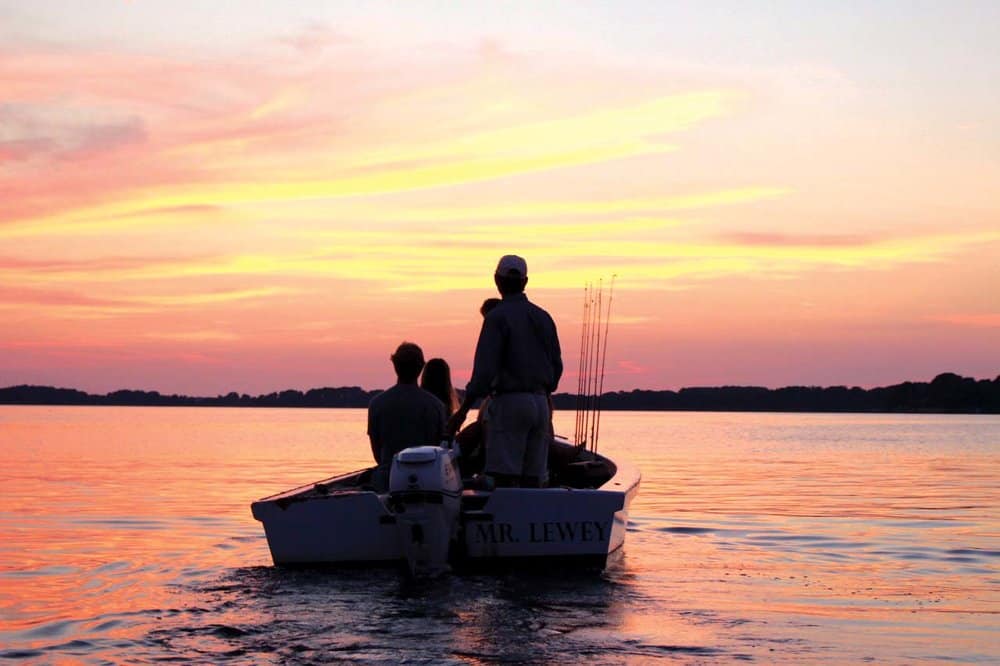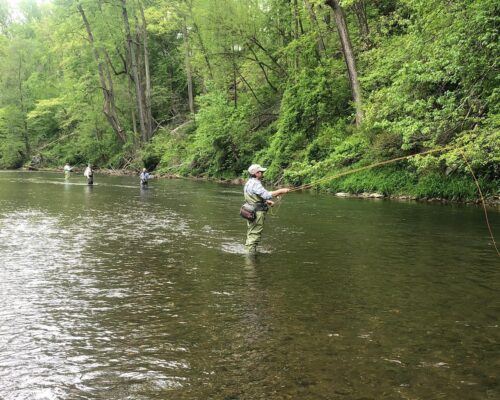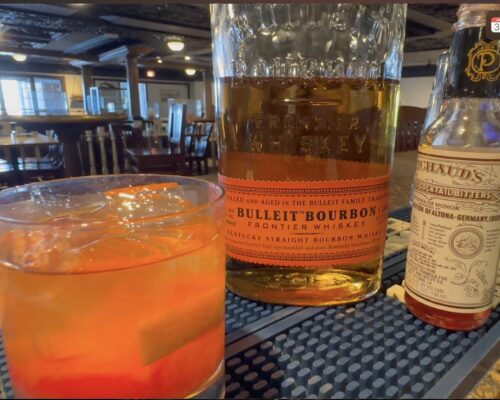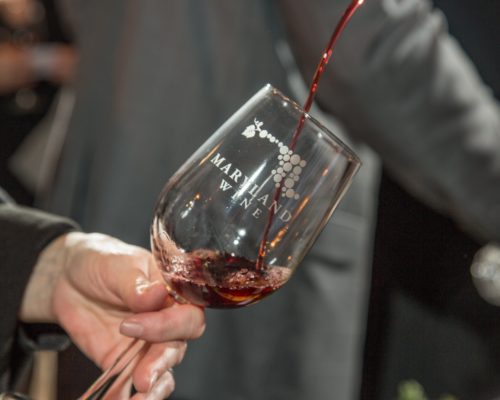A soft autumn breeze ruffles the Chester River, and the late afternoon sun splashes rosy gold on the reeds as we slide out of Elsworth’s berth in Chestertown, Md. At the helm, Annie Richards, captain of Echo Hill Outdoor School’s 116-year-old skipjack, chats easily with a couple of her sixteen passengers while the crew raises the sails on this two-or-so-hour “Elsworthy Cruise.” There’s wine, beer, snacks and a bushel of oysters that writer Kate Livie is shucking, the prelude to her reading from her book, Chesapeake Oysters: The Bay’s Foundation and Future.
While Friday evening fall cruises on the skipjack were a 2016 addition to Elsworth’s remit, the school has been using its four traditional workboats to enthrall and educate kids on the richness of the Chesapeake for decades. Founded in 1972 by Peter Rice, Jr., Echo Hill Outdoor School boasts a 70-acre Bay-side campus, which includes a barnyard, a recycling center, organic garden, Native American site, adventure challenge course, alpine tower and 172 protected acres of freshwater marsh alive with native plants and wildlife. But it’s the boats that connect participants most directly with the Bay.
The school’s programs are designed to immerse students ages six to 18 in a living-and-learning experience in nature. In addition to engaging students in the natural sciences, the programs are also designed to engender a sense of personal responsibility and community cohesion—all while having fun.

Last fall, Greenspring Montessori School in Lutherville, Md., brought its 7th and 8th graders for a Chesapeake Heritage Experience. “It was a way to come together as a community as well as the learning,” says teacher Elliot Dickson, who accompanied the class with teacher Christina Heffner.
As with anything to do with messing about in boats, or in education for that matter, the program is labor intensive. It’s also at the mercy of the economic winds. Yet Echo Hill has sailed through the Great Recession virtually unscathed. “We lost some clients, but we always had someone knocking on the door to get on the calendar,” says Andrew McCown, associate director of Echo Hill. “We had a school come from Connecticut because they decided not to take their kids to Europe and put them in hotels.”
The school’s program is the boots-on-the-ground apotheosis of Richard Louv’s book Last Child in The Woods, both an indictment of raising wired-up, screen-overdosed, hothouse kids and an elegy to the benefits kids and other humans take from connecting with nature. The book, which came out in 2008 on the cusp of the housing meltdown, fired up conscientious parents and educators alike to find ways to make that connection with nature happen. Echo Hill was a ready-made answer. “There was a consciousness about getting students out of the conventional classroom, and this book pushed people to go that extra step,” Andrew says.
Echo Hill’s clients range from cash-strapped public schools to flush private schools with many shades in between. While the combination of the book and the school’s programs are certainly part of Echo Hill’s success story, the school’s willingness to adapt to the times has also helped to keep things chugging along. “If a school has experienced a budget problem, we say, ‘What if we keep the base price the same if it means keeping them?’ ” says Betsey McCown, managing director of Echo Hill Outdoor School.
The school has increased the number of smaller groups it books and has also agreed to booking some shorter stints, for example dropping back from a five-day to a four-day trip for some of its legacy schools that have struggled with decreasing enrollment. The staff works hard to meet the individual needs of each school. “If a school hears about our program, we spend time with them asking, “What are your goals?” Betsey McCown says. “What do you hope to get out of this?” The formula has been successful for the school and for its clients.

“The program was exactly what we were looking for as we started off the school year with a study of water,” says Christine Heffner, noting that the learning is not just academic. “We try to let them do as much as they can on their own—cook their food and see that they can each help, and they need each other. It gives them the power of personal identity and accomplishment.”
This sense of personal accomplishment is an important part of the program and a reason so many schools come back year after year, once they have seen the results. “The program met and exceeded every goal we set for the 8th grade trip,” Renee Price, head of the middle school at Princeton Day School, Princeton N.J., wrote in a follow-up note to the McCowns. “The trip gave me restoration, inspiration and a shared experience with the students that brought us closer together. The feedback from the children and their parents, even the skeptical ones, was that the trip was a huge hit!”
Our two-plus-hour Elsworthy Cruise is a much less ambitious affair—a little light libation, conversation and companionship on a beautiful autumn evening on the Chester River. But, like the experiences of so many people, young and old(er) over the years of Echo Hill Outdoor School’s life, it is a huge hit.
—Nancy Taylor Robson



